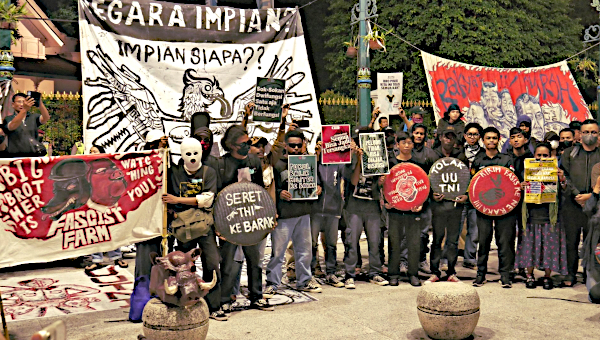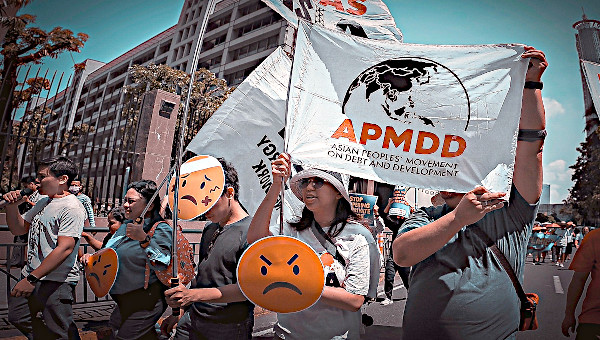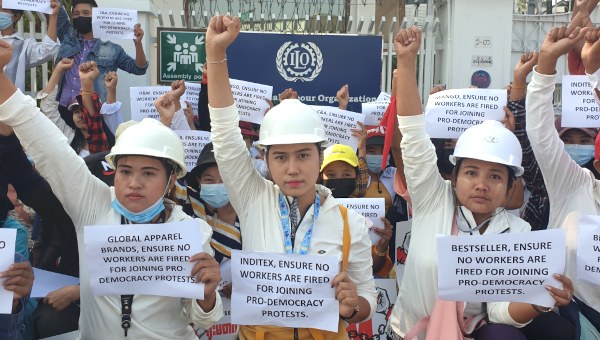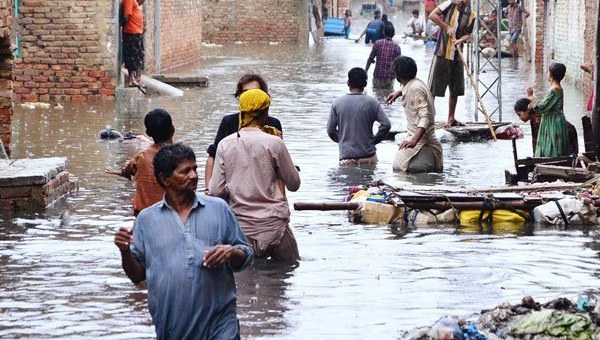On March 12, 2014, Canada’s troops formally withdrew from Afghanistan after twelve years of participation in Western military occupation under the banners of the North Atlantic Treaty Organization (NATO) and the International Security Assistance Force (ISAF). Nearly two weeks later the minister for citizenship and immigration, Chris Alexander, appeared on CBC to explain why, although Canada had supposedly succeeded in ensuring Afghanistan is no longer a base for terrorism, the main mission to “create a secure and stable environment” in Afghanistan had been a failure.
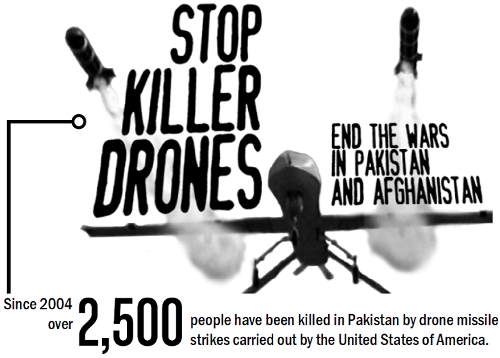
Alexander’s argument was that the war in Afghanistan was in fact a “cross-border conflict,” and that the Pakistani state was responsible for destabilizing Afghanistan through “state sponsorship” of terrorist proxies. (Pakistan, which lies to the east of Afghanistan, shares a highly porous border, with the Pakhtun people spanning both sides of the border.) Pakistan, and not Afghanistan, Alexander argued, was the real “safe haven for terrorism.” Canada could not stabilize Afghanistan because it had not been “able to project military force” in Pakistan. Going forward, he called for a “united front” of the international community (read: Western powers) against Pakistan.
Let us be clear, though, about the duplicity of the minister’s comments: Even as he was previously the parliamentary secretary to the minister of defence, the Canadian government approved sales of military equipment to Pakistan, and sought to negotiate a foreign investment promotion and protection agreement (FIPA) in order to open up Pakistan’s vast mineral resources to Canadian mining companies.
It is also well known that elements of the Pakistani Taliban have been hosted in Afghanistan, including the current leader of the Pakistani Taliban, Mullah Fazlullah – directly countering the minister’s assertion that Afghanistan is no longer a base for terrorists. Moreover, Pakistan’s ruling elites have continuously accepted the projection of U.S. and Western military force in Pakistan, not only in the form of drone strikes but also cross-border NATO hot pursuit operations.
Blaming Pakistan
Alexander’s hypocritical statement should be seen as an attempt to deflect from the tremendous costs of thousands of Afghan and hundreds of Canadian deaths, and billions of dollars spent, in Canada’s failed expedition. Blaming the bogey of Pakistan is an easy way out.
But the statement must also be seen as a wider attempt by Western powers to shift the focus of their interventions from Afghanistan to Pakistan in order to maintain their presence and power in the region after a formal “withdrawal” from Afghanistan. In a row over hosting bases in Afghanistan, U.S. officials raised concerns about finding other bases in the region from which to continue their drone strikes on Pakistani people. The key is not to actually fight the ruling elites of Pakistan, civilian or military, but to continue the war against the people of Pakistan.
In this vein, Alexander continues Canadian imperialism’s role as the advance bully of U.S. imperialism. As a key capitalist country that occupies a prominent place in all the major institutions of Western power, Canada has played an important role in supporting and facilitating U.S. and Western global dominance. Canada has not only facilitated the U.S. military agenda, but has also helped to push the neoliberal reforms of the IMF and World Bank in Third World countries – including Pakistan. Though ‘secondary’ to U.S. imperialism, Canada’s interests in Afghanistan and Pakistan are decidedly imperialist.1
Liberals in Pakistan, Afghanistan and elsewhere, have viewed the pending “departure” of Western forces from Afghanistan with anxiety, fearing that the Taliban will overrun both countries, and accordingly also opposing peace talks with the Taliban in either country. Too many well-meaning social democrats have echoed these views. It is important to keep in mind how and why this liberal perspective is tied in with and reinforces the imperialist agenda in South Asia, and to view the situation in Afghanistan and Pakistan from a properly pro-people and anti-imperialist perspective.
The “Af-Pak” War
Despite Alexander’s protestations about Canada and Western powers more broadly not projecting military force in Pakistan, NATO has long approached the war in Afghanistan and Pakistan as a single war – the “Af-Pak” War. Estimates
suggest that the so-called “war on terror” has exacted as much of a cost in terms of lives lost from Pakistanis as from Afghans.
Since 2004, over 2,500 people have been killed in Pakistan by drone missile strikes, conducted by the CIA but through a military infrastructure supported by NATO. Drones hover over the northwestern areas of Pakistan for hours on end, spying on hundreds of thousands of people and their daily activities. When the CIA decides that someone is a “militant,” that person is killed, along with whoever happens to be around them. Any military-aged men (over the age of 16 or 17) found in the strike zone are counted as “combatants,” and therefore as legitimate targets. Yet, a high percentage of those killed are just everyday people trying to live their lives in a war zone.
That said, drones are just the tip of the iceberg. In the same time period about 50,000 civilians have been killed in Pakistan by military or insurgent forces, in fighting that has been encouraged by Western countries. Millions of people have been displaced, with people now fleeing even to Afghanistan to avoid the continuous military operations in Pakistan. In comparison, at least 20,000 civilians have been killed in Afghanistan. (These are minimum numbers as estimates are hard to make reliably. With that said, the combined number of deaths in Afghanistan and Pakistan, when estimating both “combatants” and “non-combatants,” easily surpasses 100,000.)
The USA and its allies invaded Afghanistan in October 2001, apparently as a response to the terrorist attacks of September 11, 2001. The goal was to capture Osama bin Laden and other al-Qaeda militants, and soon enough, to remove the Taliban regime that ruled Afghanistan. But thirteen years later, with the Taliban out of power and al-Qaeda’s presence in the region reduced to insignificance, the USA and its allies, including Canada, continued to fight a bloody war in Afghanistan and Pakistan against local insurgents under the banner of NATO.
In fact, the international and local dimensions of the war are far more complicated than just a matter of “regime change.” In Afghanistan, the war was conducted directly under the occupation of NATO forces, who continue to prop up a new political regime that has proven to be highly unpopular and corrupt. As a result, the insurgency led by the Taliban has seen a resurgence and become more popular.
In Pakistan, a country of nearly 200 million people, the war has taken the form of a series of major military operations against insurgent forces conducted by Pakistan’s military with the pressure, encouragement and funding of the USA. These operations punctuate the constant campaign of drone strikes.
After at least 70,000 civilians have been killed in Afghanistan and Pakistan, and after millions of people have been displaced, it should be clear that this war isn’t about helping the people on the ground.
Instead, it appears that the “Af-Pak” War is about asserting the strategic dominance of the USA and its allies in Central Asia, in the face of the emerging powers of Russia and China (and Iran). Meanwhile, there are vast untapped resources of minerals and fossil fuels in both Afghanistan and western Pakistan, now being opened up for business.
The Taliban…
The Taliban are an unfortunate product of the continued meddling of the USA, Gulf Arab states (particularly Saudi Arabia) and the Pakistani ruling elites. In 1979, the ‘socialist’ regime in Afghanistan invited the military intervention of the Soviet Union upon facing rebels. The
militant rebels were provided with weapons, money and logistical support by the USA, Gulf states and Pakistan’s rulers, and their rear bases were located largely in Pakistan’s Federally Administered Tribal Areas (FATA).
The USA and Pakistani ruling elites promoted the idea that local populations in Afghanistan and Pakistan were helping out in a ‘holy’ war against an evil regime, and that a strict interpretation of Islam would solve their problems. When that war ended, militant groups continued to be funded for the foreign policy purposes of their international and local patrons. The Taliban emerged as the most dynamic and powerful of these groups, taking over Afghanistan by the middle of the 1990s. They now form the largest resistance group against NATO forces.
… and the Pakistani Taliban
Pakistan’s FATA is home to about 7 million people. Under the pretext of the “semi-autonomy” of the region, Pakistan’s ruling elites have abdicated any sort of responsibility of providing the people of FATA with the most basic human needs for over six decades – a more concentrated form of the abdication that is prevalent all across Pakistan. The political system denies basic freedoms, such as the freedom of representation and the freedom of the press. “Political Agents” are appointed by the central government to rule over tribal agencies, imposing collective punishment on tribes, and ignoring the day-to-day problems that they face.
The over-the-border trade and smuggling make the tribal areas very lucrative places to rule, but FATA is one of the most underdeveloped regions in the country: Over 60 per cent of the population lives below the national poverty line, with a literacy rate of 17.42 per cent compared to the national literacy rate of 56 per cent.
The “gap” left by the ruling elites has been filled by the militant groups that they had funded instead. Flush with cash, weapons and ideology, and being locals themselves, militants have established a significant base in FATA. Militant groups have become important for unemployed youth to find livelihoods, as fighters and as administrators. The groups have taken to facilitating (or imposing) arbitration and punishments, and have even struggled against the traditional power-holders close to the Pakistani ruling elites.
Ever since the U.S. invasion of Afghanistan, though, the influence and activity of the militant groups has increased exponentially; only now, they are cut off from the state and are fighting against it. They have become local power-holders themselves, and want to take over the central state to implement their agenda, although the likelihood of this happening is very slim. Many of these militant groups, inside and outside of FATA, are united under the banner of the Tehrik-i-Taliban Pakistan (the Pakistan Taliban Movement), as distinct from the Afghan Taliban.
War and Imperialism in South Asia
Rather than approaching the problem of militancy by understanding and addressing the complex social, economic and political dynamics of the region, the liberal-imperialist approach has flattened all complexity under the idea of an irrational, fundamentalist Islamism – there is no need to examine the history or society of FATA, all that is required is continuous military operations until all terrorists are dead. If ever the notion of complexity is raised, it is to argue that U.S. and Western intervention does not constitute imperialism.
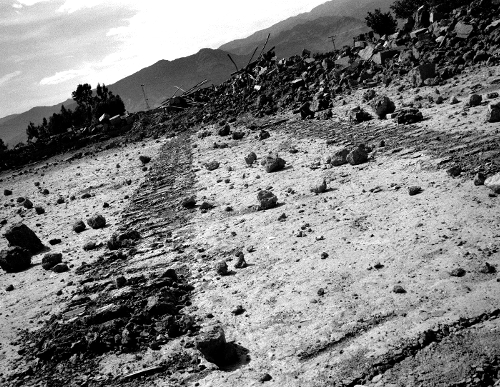
‘wipe out’ the militants from FATA and other places. Drone strikes continue unabated. In all cases, they have only succeeded in
displacing millions of people, killing thousands of innocent civilians, and simply relocating militants from one place to another. In fact, these operations and strikes provide militants with fertile grounds for new recruits. For all of these military operations, it is not at all clear that the capacity or power of militants has actually been reduced.The war has taken a terrible toll on the social, cultural, psychological and economic life of the people in FATA and Pakistan as a whole. Insurgent militants and the Pakistani military, with help from the USA, have made life miserable for all. Despite committing to depart from Afghanistan by 2014, foreign forces are looking to maintain bases and thousands of troops in the region, especially to continue operations in Pakistan. It is the presence of the U.S. and NATO forces in Central and South Asia that is the most destabilizing fact in the region, one that has caused militancy in Pakistan to gain renewed legitimacy and countless new adherents.
However, this instability has also been supported by the Gulf Arab states – themselves clients of Western imperialism. Gulf Arab states have immense influence over Pakistan’s ruling elites, and provide support to extremist groups. Yet, Gulf Arab states continue to be supported by Western imperialists. Most recently, Canada approved the sale of $10-billion worth of military equipment to Saudi Arabia, which, meanwhile, called on Pakistan’s ruling
elites, apparently to equip reactionary militants in Syria.
All of these things are connected, and point to how Canadian imperialism supports the uninterrupted intensification of war and destruction from North Africa to South Asia, so long as this opens up markets and resources for Canadian exploitation. The liberal-imperialist view isolates the war in Pakistan and approaches it as being simply about preventing militant Islamism, but this obscures the broader set of relationships in which this war is embedded – including the ways in which draconian laws and militarization enable the Pakistani state to ruthlessly suppress nationalists fighting for self-determination in the Balochistan province. The liberal-imperialist view is a starkly short-sighted and tunnel-vision approach.
Rather than promoting more war and military operations between different reactionaries within Pakistan, rather than promoting greater imperialist aggression in the region, solidarity calls for supporting a social peace. The people of Pakistan have the right and responsibility to govern themselves, and no system – liberal-imperialist or Islamist – should be forcibly imposed on the people.
Pakistan’s people will have to force their government to re-evaluate relations with the USA and other foreign powers in the interests of the people. In Canada, solidarity means cutting through the fog of imperialist propaganda and standing firm against U.S. and NATO interventions in Afghanistan and Pakistan. What is required is an anti-imperialist (and not merely anti-war) movement that calls for an immediate and unconditional end to drone attacks and the complete withdrawal of the U.S. and NATO forces from the whole of the region, including their support of Gulf Arab states. •
The Campaign Against Drones in Pakistan (CADiP) is an independent, anti-drone, anti-imperialist and pro-people group, formed to campaign against drone attacks in Pakistan and the imperialist wars in Pakistan and Afghanistan in general. To learn more, or to learn how you can get involved, please visit our web site (cadip.info) or our Facebook page (facebook.com/CADiPinfo) or e-mail us: contact@cadip.info.


